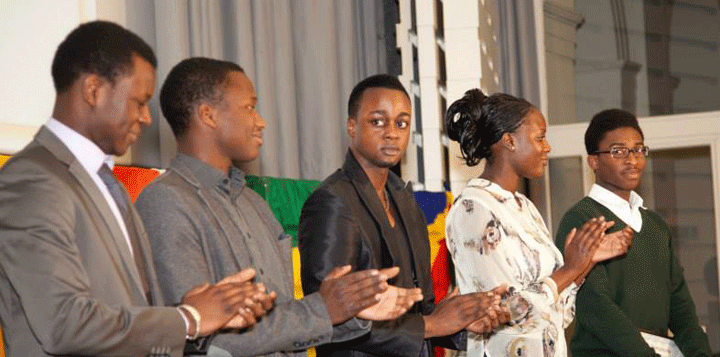Since its inception in 2011, the African Youth Education Awards (AYEA) program has been a beacon of hope for over 100 talented young students across in Germany. These recipients have gone on to achieve remarkable success in various fields, contributing to their communities and the world at large. However, there exists an untapped resource that could significantly elevate the AYEA program—the past recipients themselves, the AYEA alumni.
The AYEA Alumni Network
One of the challenges facing AYEA organizers is the limited involvement of alumni in the program's ongoing development. Many of the past awardees have transitioned into successful careers in reputable companies and institutions, but their valuable skills and experiences remain underutilized within the AYEA community. The question arises: how can the AYEA alumni contribute to the program's growth, and why is their involvement essential?
- Mentorship and Guidance: AYEA alumni can provide mentorship and guidance to current recipients. Their journey from AYEA awardee to accomplished professionals positions them as ideal mentors who can offer insights into navigating the challenges of higher education and career development.
- Networking Opportunities: AYEA alumni have built extensive networks in various industries. Leveraging these connections can help current recipients secure internships, scholarships, and job opportunities, facilitating their academic and professional growth.
- Fundraising and Sponsorship: Alumni who have succeeded in their careers may be in a position to financially support the AYEA program, either individually or by connecting the organization with potential sponsors. This financial support can be instrumental in sustaining and expanding the initiative.
- Promotion and Advocacy: AYEA alumni can act as ambassadors for the program, promoting it among potential recipients, donors, and partners. Their advocacy can help raise awareness and attract valuable resources to AYEA.
- Advisory Roles: AYEA alumni can serve on advisory boards, providing valuable input on program development, curriculum enhancement, and strategic planning. Their input can ensure that AYEA remains relevant and responsive to the evolving needs of African youth.
Overcoming Challenges
The limited engagement of AYEA alumni in the program's activities can be attributed to several factors. One major challenge is the lack of consistent communication and follow-up from the organizers. To harness the full potential of alumni, TopAfric must establish robust communication channels, such as alumni newsletters, social media groups, and alumni reunions. Regular updates on program achievements and alumni success stories can help maintain a sense of belonging and connection.It is also possible that some alumni perceive themselves as part of an elite club, detached from the program's current participants. To counter this, AYEA organizers should emphasize the concept of giving back and fostering a sense of responsibility among alumni towards the program that played a crucial role in their educational journey.
Conclusion
The AYEA program has transformed the lives of numerous African youth over the past decade. To ensure its continued success and growth, it is imperative to tap into the wealth of knowledge, experience, and resources held by AYEA alumni. By actively involving past recipients in mentorship, networking, fundraising, promotion, and advisory roles, the program can create a virtuous cycle of support and empowerment, furthering its mission to uplift the continent's future leaders. AYEA alumni are not just beneficiaries of the program; they are its potential champions and advocates, capable of taking it to new heights.Desmond John Beddy
https://beddy.de
Sidebar
Magazine menu

 Teline V
Best News Template For Joomla
Teline V
Best News Template For Joomla
20
Fri, Sep
13
New Articles










